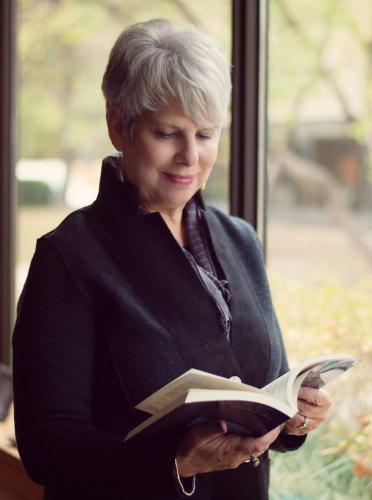Holy One, create within me a pure and discerning heart.
Place within me ruach, that my breath be restored,
that my spirit be steady and sure.
- Based on Psalm 51:12
Joseph is bold and brave and has a natural clarity for what others see as trivial or obtuse. He does not flinch or blink when God comes calling. He knows what he sees, what he dreams, what will come to pass. He speaks of his dreams and of what he knows to be true. It is an intimate relationship.
God speaks to Joseph through dreams, and Joseph feels wrapped in a Divine loving presence. God was with Joseph, chesed, loving kindness, fell upon him (Gen. 39:20-21). In the early days, such visions angered his brothers so much that they conspired against him and plotted his demise. But as time went on, Joseph was able to speak of his night visions and gain favor and admiration. Even in the Egyptian prison, the chief jailer did not supervise anything that was in Joseph's charge, because God was with him, and whatever he did God made successful (39:22-23).
Some say our dreams are born of fears and hopes, of an agitated soul. Others reply that they are visions of what can be, or premonitions of what will most certainly be. Maybe our dreams are channeled energy -- energy that works its way through the mind and spirit, pulling the curtain back just a bit to reveal a Divine truth - a truth that is hidden by the waking mind. The waking mind must be trained not to forget and not to deny the night visions that come to visit.
Sometimes we are too lazy or unschooled or too fearful to capture the stardust that comes our way in the darkness. We have all had that fleeting sensation of revelation brushing our sleeping eyes. But once awake, we forget and are only left with a sensation. We whisper to the morning: I was so brilliant that I can't remember a thing, as if touched by a fleeting moment of Divine inspiration. Dorianne Laux brilliantly captures that moment in her poem "Dust" (What We Carry):
Someone spoke to me last night,
told me the truth. Just a few words,
but I recognized it.
I knew I should make myself get up,
write it down, but it was late,
and I was exhausted from working
all day in the garden, moving rocks.
Now, I remember only the flavor-
not like food, sweet or sharp.
More like a fine powder, like dust.
And I wasn't elated or frightened,
but simply rapt, aware.
That's how it is sometimes-
God comes to your window,
all bright light and black wings,
and you're just too tired to open it.
Inspiration comes to us all, but Joseph's is more refined and discerning than most. He is imbued with ruach elohim. Even Pharaoh knows it: " And Pharaoh said to his courtiers, 'Could we find another like him, a man in whom is (Ruach Elohim) the spirit of God?' So, Pharaoh said to Joseph, 'Since God has made all this known to you, there is none so discerning and wise as you'" (Gen. 41:38-39). Ruach elohim is the God source within us; it is what animates our spirituality. It makes us "discerning and wise."
Inspiration is a fundamental part of our humanity. Beginning with our origin story and all through our daily liturgy, we affirm that God, Ruach Elohim, is the spirit that animates us. Genesis introduces us to ruach elohim as the wind, the breath of God's presence: the earth being unformed and void, with darkness over the surface of the deep and ruach elohim, a wind, the breath, the spirit of God hovered (Gen. 1:2). And in our daily prayers we affirm this windy, breathy presence of God: God the soul you have given me is pure. You have created it, You have formed it and You have breathed it into me, and You protect it within me and someday You will release it from me (morning liturgy, elohai n'shama). In fact, the word spirit means "breath of God, breath of life, the animating and vital principle in humans" (Online Etymology Dictionary).
How beautiful is the language that connects the word spirit with the breath, the wispy reality of God. When we are in-spired, we literarily 'breath in' the creative source of God. And when we a-spire, we yearn to connect with God's hovering presence. And, ultimately, when we expire, the word the medical profession uses for death, the spirit of God leaves us with our last breath. As it is written, "A nd the dust returns to the ground as it was, and the life breath returns to God who bestowed it " (Ecclesiastic 12:7).
Joseph. We remember him as a precocious child flaunting that spectacular and colorful coat. We remember him as taunting his brothers with his dreams of superiority. We remember him as he rises to the top of Pharaoh's court, then reconciling with his family, forgiving them, and saving our people from the draught that plagued the land. We remember Joseph as being imbued with ruach elohim, an inspired sense of God and God's purpose. We remember him as a wise man, a discerning man who, unlike the person in Laux's, poem, opens the widow so that the windy hovering spirit of God could fill his soul.
As long as we are invited to live another day of life, may we be inspired, discerning, and aspiring to attain a small measure of wisdom.
Explore Jewish Life and Get Inspired
Subscribe for Emails


